Velvet ropes and VIP rooms are staples of the nightlife scene, and you know how they work: The only way people in the general admission line get in is if they’re on a guest list, have the “right look,” or can slip the bouncer some cash.
That is not, however, how lunchtime at a public school is supposed to work.
But maybe parents at Lawton Chiles Middle Academy in Lakeland, Florida, spend lots of time at the club because a fundraising appeal letter from the school’s parent teacher student association offered a controversial perk: donate $100 in exchange for your kid being able to cut in the lunch line.
The letter, which was included in orientation packets for the school’s nearly 700 students offered the opportunity to become a "$100 Family or Business Sponsor." In exchange for the cash, parents could get their name or company logo displayed on the school website and at PTSA events, and their children would get a “front of the lunch line pass.”
That would mean that kids whose families don’t have $100 to fork over for VIP status in the lunch line will get their food last and, thus, have less time to eat. If Lawton Chiles Middle Academy is anything like other middle schools across the nation, bullying is probably an epidemic. How long until a kid whose family can pony up $100 makes a snarky, hurtful comment to a student whose family can’t?
As you might imagine, this did not go over so well with some parents.
“Like they can’t have thought, ‘Hey, this is a great idea!’” Chris Stephenson, the father of a sixth-grader told WTSP, the CBS-affiliate in nearby Tampa. “It’s 2017. This is not the 1960s. We’re not telling people to go to the back of the bus ‘cause you’re poor. That’s stupid!”
But many schools do just that by lunch-shaming poor kids who can’t afford meals. Campuses nationwide have been called out for making hungry students mop floors or get their hands marked in exchange for a meal.
The fundraising appeal caused such an uproar that the school’s principal, Brian Andrews, had to send a school-wide email disavowing it. “Please disregard this form as it was not approved prior to distribution,” he wrote.“I do not approve of any donation that is tied to any student advantage or privilege on campus."
The PTSA subsequently explained that it had explored the idea of the family and business sponsorship and, ultimately, decided to scrap it. The letters ended up in the orientation packets due to a clerical mistake, according to the PTSA.
You’d think school administrators would want to review exactly what’s in an orientation packet prior to distribution to make sure everything is as it should be. After all, who knows what else could get into those packets by mistake? Lawton Chiles is lucky those middle-schoolers weren’t accidentally given a sheet of paper with every teacher’s personal email.
But more so, what happened at Lawton Chiles is another reminder that many of America’s schools are struggling to make ends meet. Teachers regularly beg strangers online to help them buy books and other classroom supplies, and I can personally attest that it is no fun to harass people I work with about buying chocolate bars, so that my kids’ schools can pay for art and music classes.
“We don’t want any kids feeling like second-class citizens,” Andrews told the station. If the nation’s schools ever get fully funded, maybe students won’t have to.










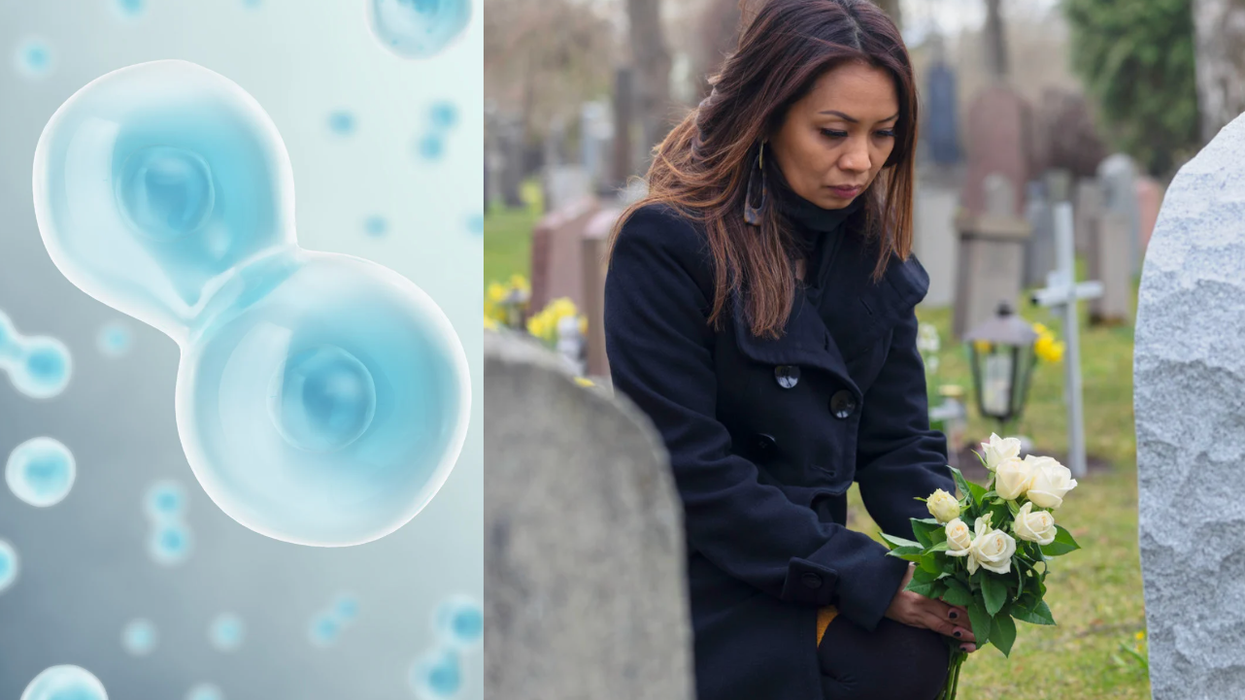





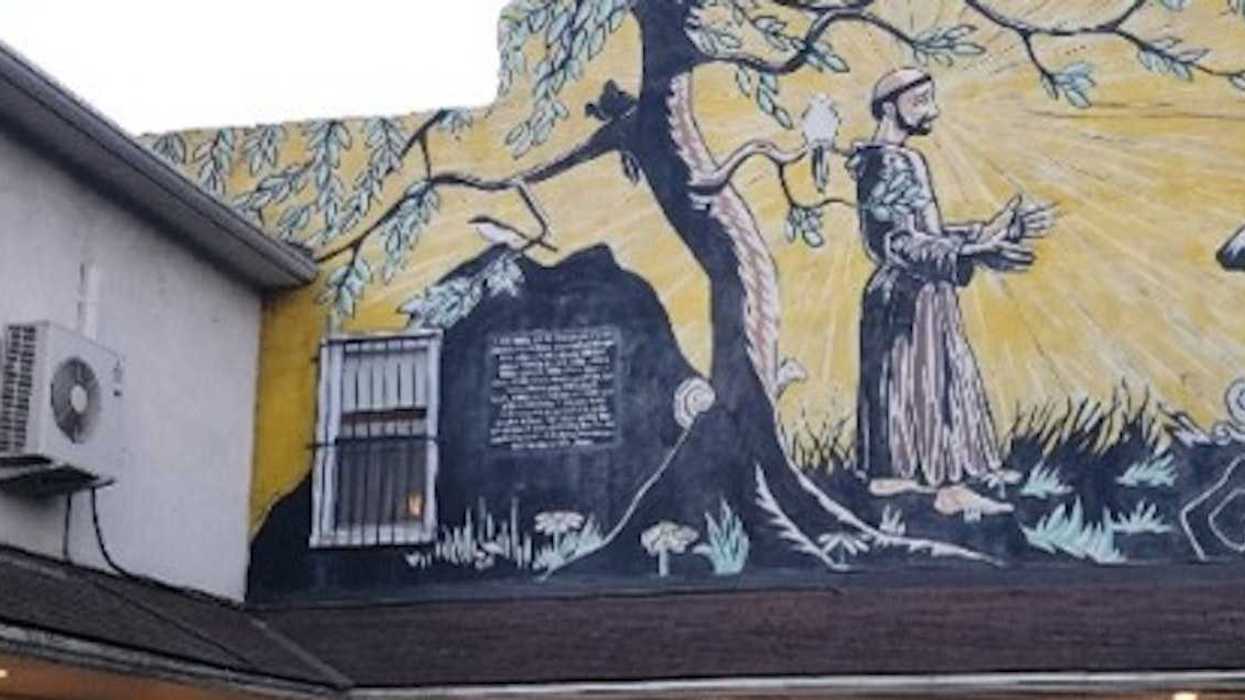
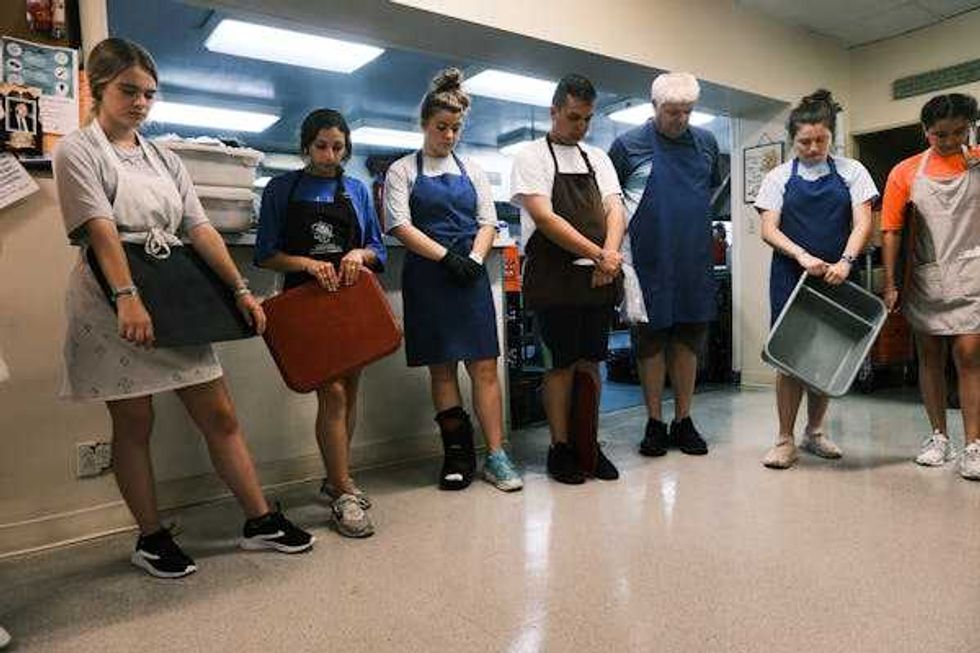 Volunteers at the St. Francis Inn pray together before serving a meal on July 19, 2021.
Volunteers at the St. Francis Inn pray together before serving a meal on July 19, 2021.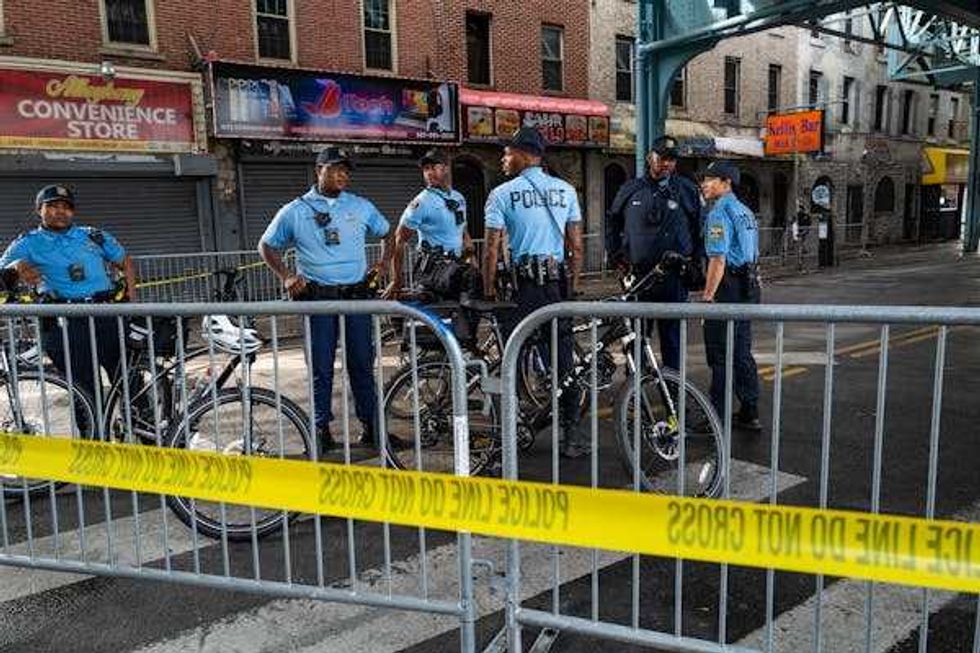 Police close down a section of Kensington Avenue to clear a homeless encampment on May 8, 2024.
Police close down a section of Kensington Avenue to clear a homeless encampment on May 8, 2024.


 Left: A robotic arm. Right: Rice grains.Photo credit:
Left: A robotic arm. Right: Rice grains.Photo credit:  A diagram on kidney stones.myupchar/
A diagram on kidney stones.myupchar/ 
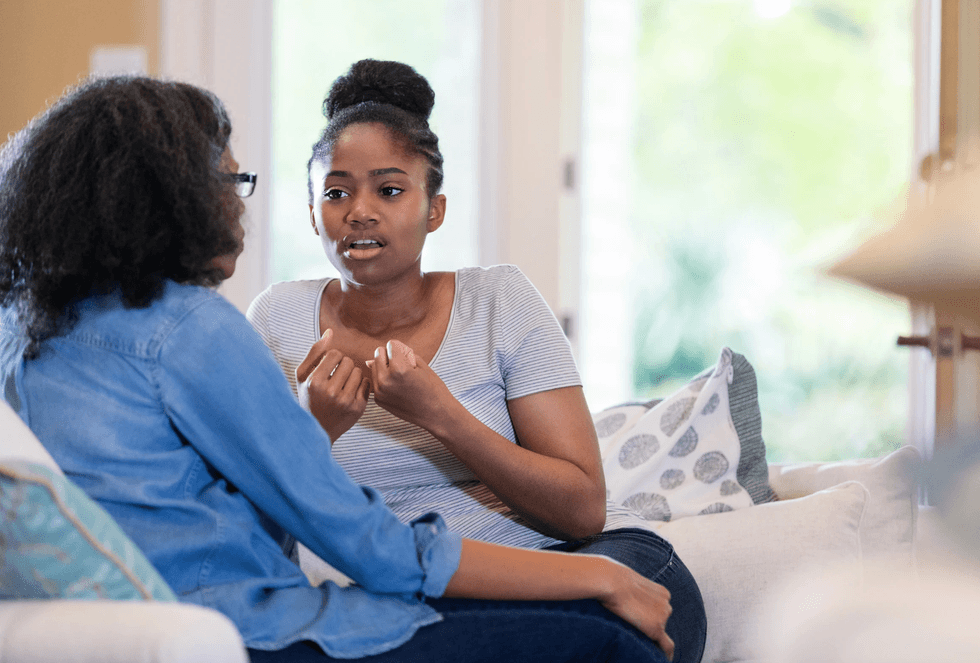 A couple engages in a serious conversationCanva
A couple engages in a serious conversationCanva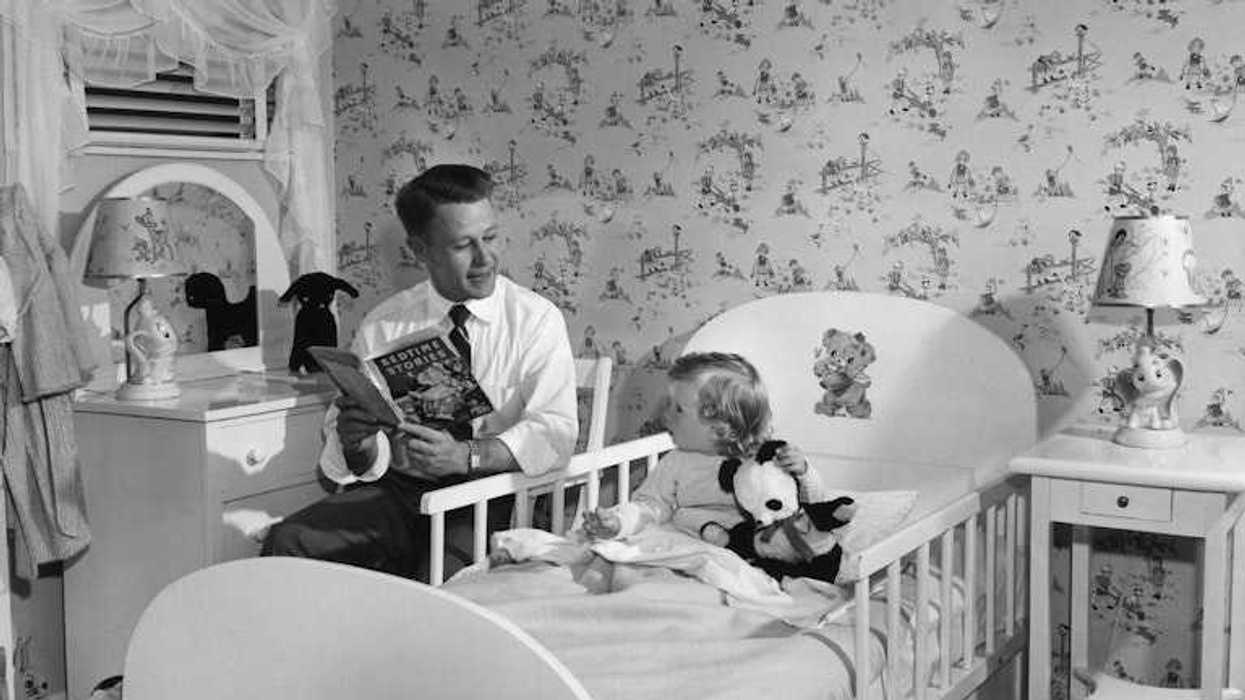
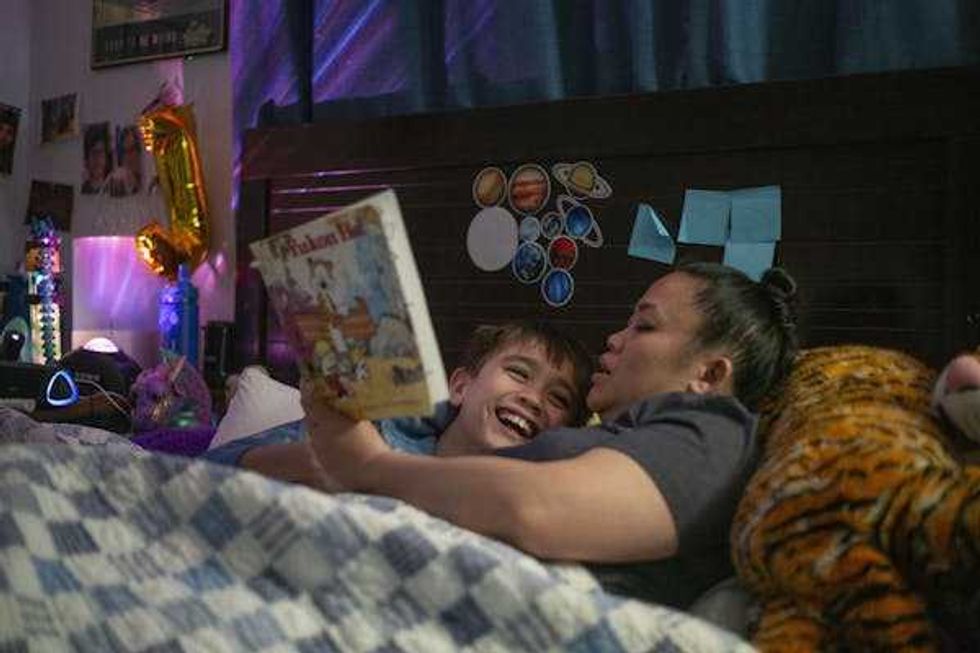 Christy Lam-Julian, a mother in Pinole, Calif., reads to her son in April 2025.
Christy Lam-Julian, a mother in Pinole, Calif., reads to her son in April 2025.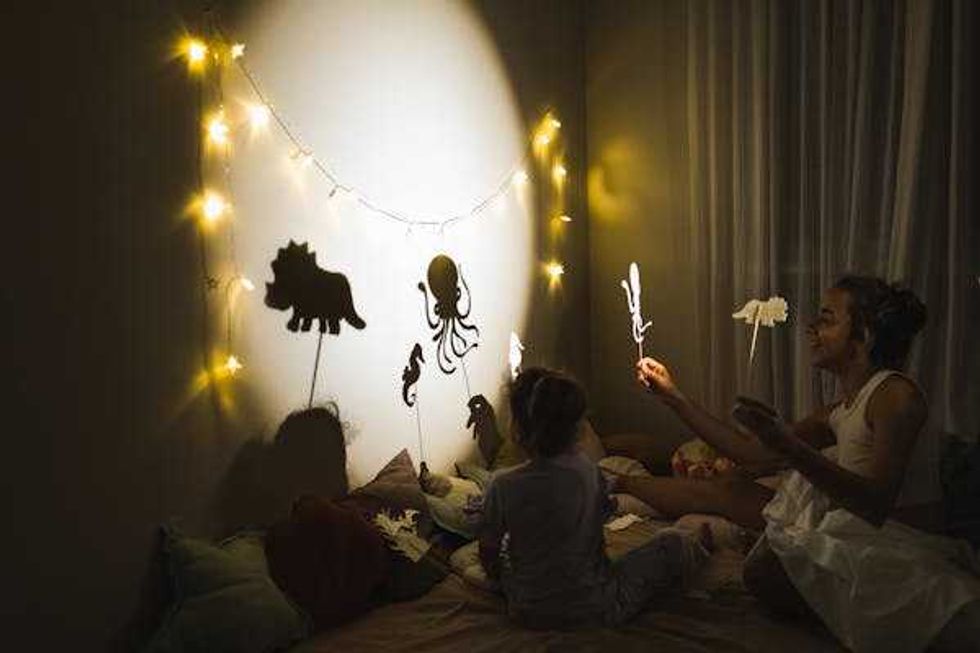 Children who read bedtime stories with their parents are likely to benefit from a boost in creativity – especially if they consider questions about the books.
Children who read bedtime stories with their parents are likely to benefit from a boost in creativity – especially if they consider questions about the books.